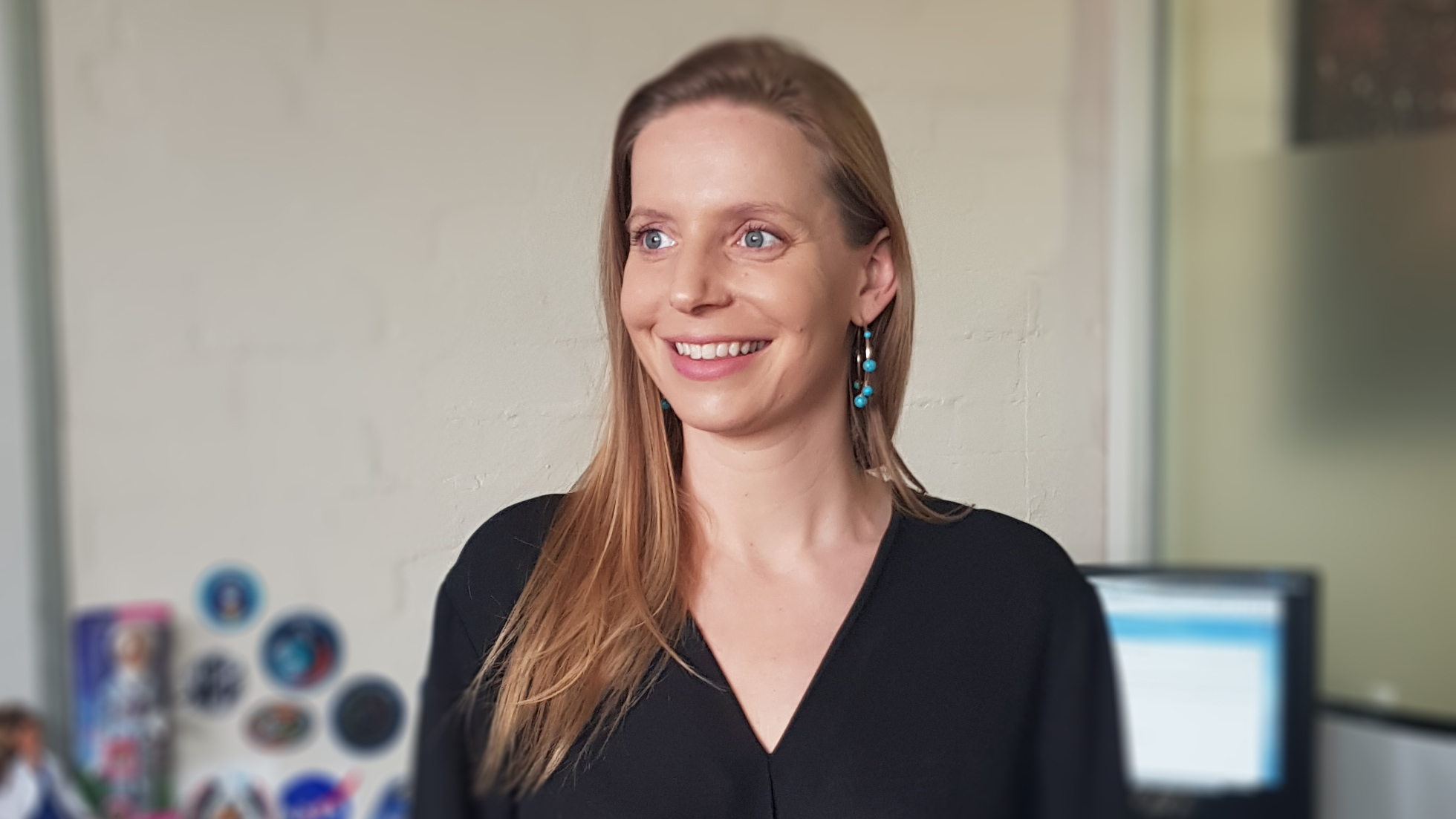Swinburne’s Dr Rebecca Allen wins Young Tall Poppy Science Award

Dr Rebecca Allen has built an impressive media profile and regularly appears on TV and radio discussing the latest developments in space.
In summary
- Dr Rebecca Allen has been selected by the Australian Institute of Policy and Science to receive a prestigious Young Tall Poppy Science award
- The awards honour up-and-coming scientists who combine world-class research with a passionate commitment to communicating science
Swinburne astronomer Dr Rebecca Allen has been recognised as an outstanding young scientific researcher and communicator with a prestigious Young Tall Poppy Science award.
Dr Allen’s PhD research focused on using images from the Hubble Space Telescope combined with deep ground-based imaging to study the growth of galaxies over time.
/wider-deeper-faster_E6A1575.JPG)
She has since transitioned into space technology and leads the Microgravity theme of Swinburne’s new Space Technology and Industry Institute, collaborating with industry and academics on testing of materials, biotechnology and physics in microgravity environments.
Dr Allen has built an impressive media profile and regularly appears on TV and radio discussing the latest developments in space.

She leads Swinburne Astronomy Productions, has produced two virtual reality movies and in pre-pandemic times hosted school students for AstroTours at Swinburne’s virtual reality theatre.
Dr Allen also leads the Swinburne Youth Space Innovation Challenge, where university and high-school students work together to send experiments to the International Space Station.
During National Science Week, she has led Swinburne’s Science in VR (SciVR) program. This program enables science for all, sending virtual reality headsets across the country for members of the public to tour the night sky, guided by Dr Allen alongside Professor Alan Duffy in a special online event.

‘Rebecca’s ethos is to make science accessible to everyone, and to encourage students and the general public alike to share her love of space and science,’ says Swinburne Chief Scientist and Acting Deputy Vice-Chancellor (Research) Professor Virginia Kilborn.
‘It was amazing to learn that I was one of the Victorian recipients of the award and to have all my efforts recognised, says Dr Allen.
‘I chose space because it encompasses our whole Universe! But teaching and communicating is also learning as you are challenged to step back and understand how others learn.
‘We have launched several meaningful outreach programs at Swinburne and it is my hope that this award shines a light on those efforts. Our ambitions are to see these initiatives grow so that we can reach even more students and inspire the community.
‘By using immersive and interactive programs to share our knowledge, we can reach diverse audiences and empower them through hands-on experiences.’
Young Tall Poppy Science Awards
The Young Tall Poppy Science Awards were established in 2000. They are run by the Australian Institute of Policy and Science (AIPS) to honour up-and-coming scientists who combine world-class research with a passionate commitment to communicating science. Young Tall Poppies are nominated by their peers and are early career researchers who have under ten years’ post-doctoral experience. Selection is based on research achievement and leadership potential.
-
Media Enquiries
Related articles
-

- Design
- Technology
- Health
- Law
- Education
- Business
- Science
- University
- Engineering
Swinburne moves up in Times Higher Education World University Rankings by Subject 2026
Swinburne University of Technology has performed strongly in the Times Higher Education World University Rankings by Subject 2026, with two subjects moving up the ranks.
Thursday 22 January 2026 -

- Technology
- Science
- University
- Aviation
- Sustainability
- Engineering
Swinburne secures AEA funding in aerospace, critical metals, sustainable steel production and protective helmet design
Swinburne University of Technology researchers have secured over $1.6 million in funding from Australia’s Economic Accelerator (AEA) Ignite grants.
Thursday 22 January 2026 -

- Student News
- Science
- Sustainability
Introducing tomorrow’s global science communicators
Start Talking is Swinburne’s unique video-based public speaking competition, exclusively for undergraduate students
Monday 08 December 2025 -

- Astronomy
- Technology
- Health
- Science
- University
- Sustainability
- Engineering
Swinburne highly cited researchers reach the top in 12 fields
Ten Swinburne academics have been named on the Highly Cited Researchers 2025 list, released by Clarivate
Tuesday 02 December 2025 -

- Science
- Engineering
Swinburne secures grant to advance next-generation metamaterials research
Swinburne physicist Dr Weibai Li has received a Discovery Early Career Researcher Award from the Australian Research Council
Tuesday 02 December 2025

